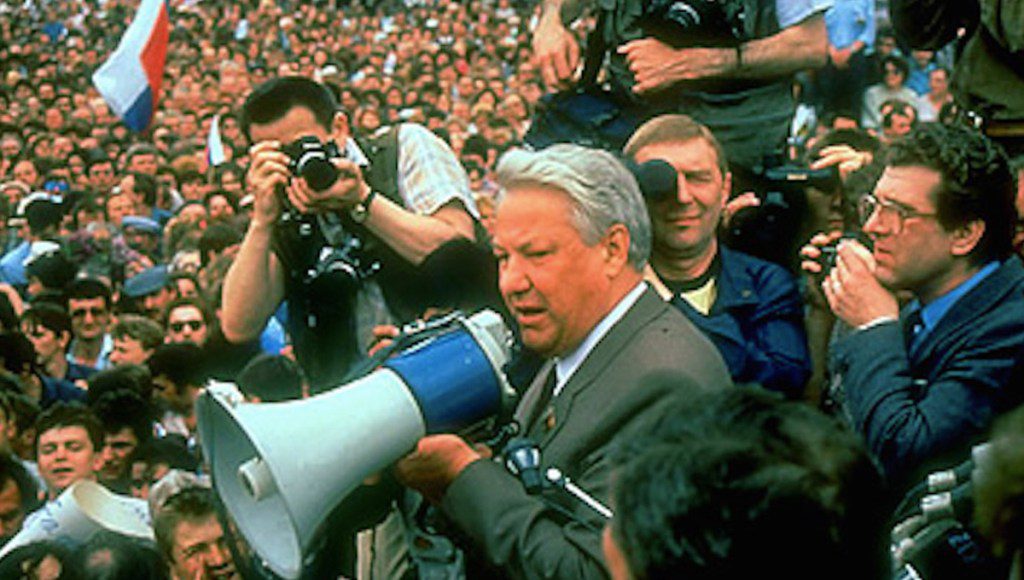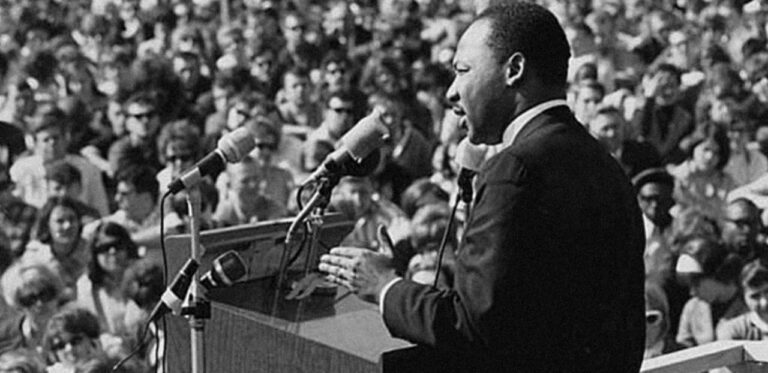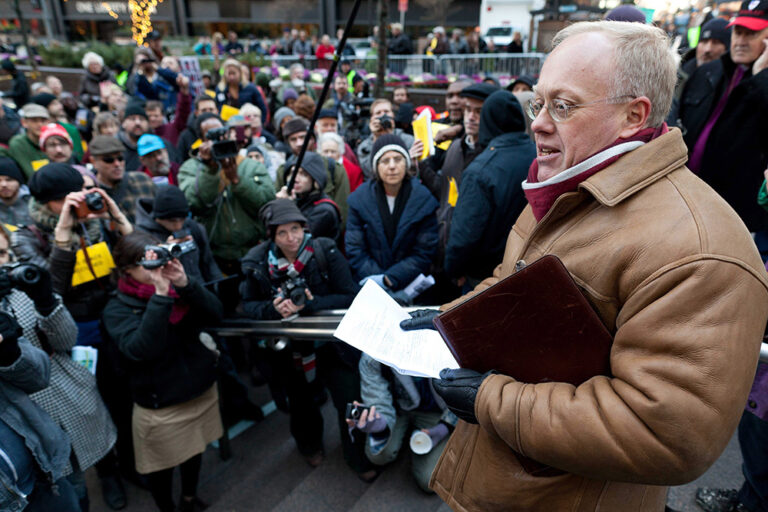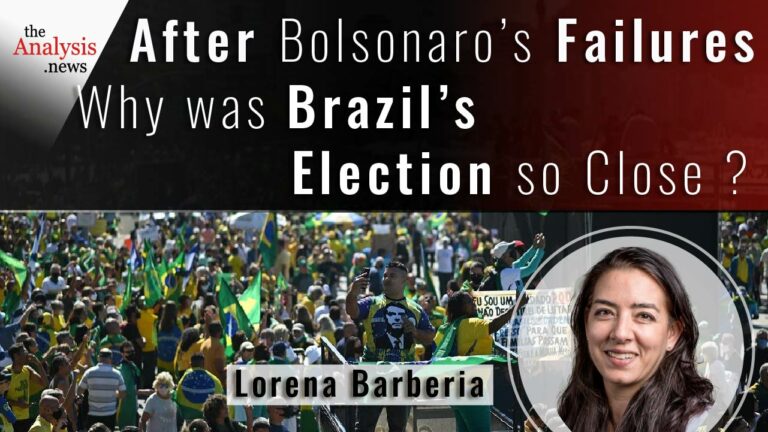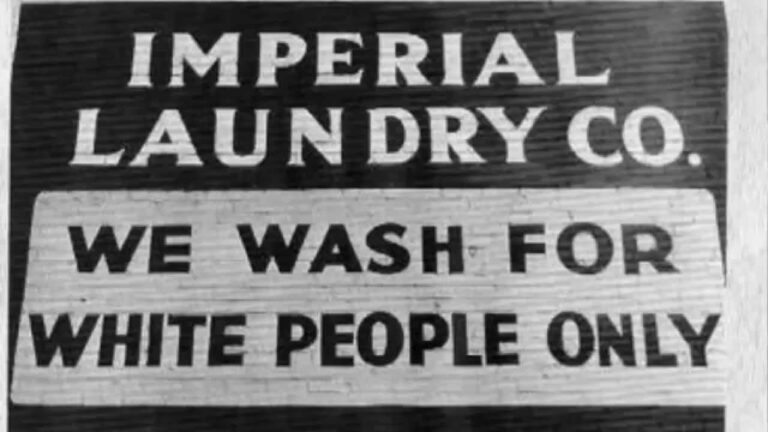Shock Without the Therapy: A New Russia is Born in Chaos and Plunder – RAI with Aleksandr Buzgalin (6/12)
On Reality Asserts Itself, Prof. Aleksandr Buzgalin says the collapse of the Soviet Union was followed by the rise of billionaire oligarchs as the “free market” led to the impoverishment of the people – with host Paul Jay.
This is an episode of Reality Asserts Itself, produced July 19, 2018.
STORY TRANSCRIPT
PAUL JAY: Welcome back to Reality Asserts Itself on The Real News Network. I’m Paul Jay, and we’re continuing our discussion with Professor Alexander Buzgalin. Thanks for joining us again. So, Professor Buzgalin teaches political economy and is Director of the Center for Modern Marxist Studies at Moscow State University. So, to understand where we are, you really got to watch the earlier segments, because I ain’t gonna sum it up. And we’re into a fascinating story, so if you haven’t, just stop right now and go back and watch.
ALEXANDER BUZGALIN: No, no. They can just understand that Soviet Union is collapsed.
PAUL JAY: Soviet Union is collapsed. All right, so, and the reason the Soviet Union collapsed is because you went on vacation and you weren’t there to stop it.
ALEXANDER BUZGALIN: Ah…
PAUL JAY: Ah hah, now we got it. Now we got it. All right. You come back from the vacation, and there’s kind of no Soviet Union, Yeltsin’s in power, and you’re saying, “What the hell happened?”
ALEXANDER BUZGALIN: Yeah. Really, when officially, Communist Party was forbidden, and Soviet Union disappeared, I must stress that in this period, people were tired from all this disorder. And there is question, why nobody came to rescue the Soviet Union. The question is important because one year, even less than one year before we had referendum, and more than seventy percent said that we want to have new Soviet Union, but we don’t want to have Soviet Union. New one, more Democratic, not bureaucratic, but we do want. More than two thirds. And after that, nobody in the streets. Why? Because people lost trust to the leaders, and leaders led to the collapse, first.
And second, we had a lot of this naïve belief that market will bring prosperity tomorrow. And again, the reason was that last years of Soviet Union, not even Gorbachev period but before, last decades of the Soviet Union, we had growth of conformism, consumerism and alienation. And this type of society will lead to the collapse of even quasi-socialist system, inevitably. And this is fundamental reason. What we received? Model, theoretical- not even theoretical, but for ordinary people, logic was simple. We have, in Soviet Union, oil, gas, raw materials, everything. We have good industry- maybe not the best in the world, but very good. We had big number of intellectuals, wonderful education. What we don’t have? We don’t have market which will create efficient economy.
So, now we will have market, we will have private initiative, and tomorrow, we will have life better than in Sweden, because everyone wanted to have Sweden, not United States with social polarization. What we received in reality? We received terrible crisis. Fifty percent decline of production, thirty percent decline of average incomes. Thirty, because it- you know, this old joke, what is average income? It’s like in hospital, average temperature. One guy is dead, his temperature is thirty. Another is terribly sick, his temperature is forty. But an average of thirty-six point six? Everything is perfect. But average incomes were thirty percent less, thirty-five percent less. But for majority, it was more than fifty percent less. So, it was terrible situation. Two million people were dead because of the poverty, hunger, absence of the apartments, and so on. It’s a long story.
PAUL JAY: Infant mortality rates went up, longevity went down. You said in an earlier segment, “shock without the therapy.”
ALEXANDER BUZGALIN: Shock without therapy, yes. So, it was very-
PAUL JAY: Closing down of state enterprises.
ALEXANDER BUZGALIN: Yeah, it was very radical privatization, liberalization, open economy-
PAUL JAY: And very much guided and assisted directly by the United States.
ALEXANDER BUZGALIN: Yes, but it was the most efficient variant to expropriate social property and to create private business and to create new class of bourgeois over one, two years.
PAUL JAY: And this was the birth of the oligarchs.
ALEXANDER BUZGALIN: Yeah. And it was very efficient, very smart idea, but for tiny minority who became very rich. And it was terrible catastrophe for majority. So, when people say that Gaidar was Prime Minister and Yeltsin and all others made big mistake, no mistakes. They made great gain for them. And the price doesn’t matter for them. You know, there is such expression, to put airplane in the point of no return. It will be no fuel to come back to the airport of the beginning. So, the idea, for them, was to put our country to the point of no return. No return to Soviet Union, no return the quasi-socialist, but still more or less socialist, system. And they did it very quickly, very efficient transformation.
A lot of people asked me, as professional, as specialist in political economy, “Why transformation from bureaucratic planning to market, which is more or less efficient in the United States, led to the crisis?” So, I will give very simple, maybe too simplistic explanation, but we have interview, not lecture. There is parallel. Market is transportation in the city with private cars. And plan is like a subway. So, if you want to move from subway transportation to private cars transportation, it’s not enough to put bump in the subway. It’s necessary to have roads, it’s necessary to have cars. It’s necessary to have drivers, and polite drivers. It’s necessary to have regulation in every crossroad. So, it’s necessary to build infrastructure, institutions, to have mentality and so on.
And what was done in 1991, 1992? Explosives in the metro, explosives in the subway, nothing else. Planned system was completely destroyed by decree of president. One signature, no plan, no regulation of prices, no regulation of exchange, nothing. Free economy, what we received. Huge enterprise. One hundred thousand workers. We had shadow business people, they had maybe one, two, ten million dollars. Can they’d be owners of the enterprises with one hundred thousand workers? Can they pay them wage, can they pay for the electricity, for the heat? No. what they made, they made from the enterprise, the place where vodka was selling, or something like that. So, this is the explanation, why received this crisis. And it was until growth of the struggle from below.
PAUL JAY: Just so people get what’s going on during this period, if I understand it correctly, you have this massive wealth of the Soviet Union, or Russia at that point, including state enterprises and natural resources and oil and mines and all of this, and it all starts getting privatized, sold off for a song. And people at the higher levels of the state and such all start to cash in and own this stuff, paying very little to acquire these public assets. Is that correct?
ALEXANDER BUZGALIN: It’s correct, yes. And we had very rapid, very brutal period of primitive accumulation of capital.
PAUL JAY: I think you called it, in an earlier interview, Jurassic Park Capitalism.
ALEXANDER BUZGALIN: Yes, it’s true, it’s an image, the Soviet Union was like dinosaurs fighting between each other, these monsters. Huge- first of all, it was not huge corporations, but very quickly, it was all concentration of capital in the hand of a few.
PAUL JAY: Were the Americans a little disappointed that it was mostly Russian oligarchs grabbing all this and the Americans themselves couldn’t directly grab more of it?
ALEXANDER BUZGALIN: It’s partly truth, partly because foreigners received a lot of positive- for them, of course, negative for us- results, because of the free exchange rate of dollar. And for one dollar, in Russia you could live one, two days without any restrictions for your consumption. It was terrible situation. And very low prices for the oil and gas. So, West received a lot. But West didn’t have time to receive control over all our natural resources, and mainly because- not because Yeltsin or Gaidar or anybody else created barriers- but mainly because they were afraid that it is so terrible disorder that they will not keep control over this oil and gas if they come. It was necessary to spend billions of dollars without any guarantees. And everybody was afraid that tomorrow will be, again, restoration of Soviet Union. Why? Because from 1992, we had the enormous demonstrations and protest actions. It’s not a very well-known story, but in the center of Moscow, we had rallies for two, three, hundred thousand people.
PAUL JAY: Demanding what?
ALEXANDER BUZGALIN: Demanding, stop privatization. Demanding, come back to Soviet system.
PAUL JAY: Were you there?
ALEXANDER BUZGALIN: I was among the org- it was two wings. One, and the most popular by the way, was main Stalinist wing. We must come back to the strong Soviet power without any democracy and so on. Let’s forget about these games.
PAUL JAY: And this is because of- this was a way out of the chaos.
ALEXANDER BUZGALIN: Yeah, because people under- so, logic was very simple. Democracy led to the chaos, poverty and so on. Even until now, the word democracy means “power of Democrats” in Russia. This is Russian translation of the word democracy, and Democrats are those who are stealing everything in their pockets. This is a strange interpretation of democracy, but this is reality. So, and it was democratic left internationalist wing. And we had Congress of left democratic forces coordinating council of this Congress. And I was among the- maybe not leaders, but important people who were working in this direction. And it’s interesting that Parliament of Russian Federation, where we had relatively big left-wing, started to prepare alternative to this policy. And we were among those who were experts. And the program was not radical socialism or socialist revolution, but more or less, Chinese model. To stop brutal privatization, to keep socialist state sector, to restrict market, to have control over the prices, to support social justice, and so on. So, more or less, left social democratic program with a little bit statist form, little bit bureaucratic form. And we had big meetings, conferences, one thousand people, delegates from different organizations, groups, and it was prepared. And in Parliament, we had nearly majority of support to this alternative. Not my program, but common program of this movement.
PAUL JAY: So, ’92, ’93, two, three hundred thousand in the streets. But what about the broad section of the population? Are they sympathetic with this or-?
ALEXANDER BUZGALIN: Absolute majority were sympathetic to these ideas, but not decisive to fight, to go for revolution, let’s say.
PAUL JAY: And where is the army? The army has had, you’d think, such ideological training, and-
ALEXANDER BUZGALIN: The army had terrible collapse because first of all, during five years of Gorbachev power, it was terrible discrediting of army. Army is force for disorder, for dictatorship, for killing, and so on. And in ‘92, the army was poverty. Soldiers and officers were hungry, simply. It was no money for them.
PAUL JAY: So, it’s falling apart.
ALEXANDER BUZGALIN: Yeah, so they were in terrible crisis. And somewhere- ’93, it was prepared, the program, alternative program to privatization and so on, to continuation of this shock therapy, shock without therapy, policy. And in early September, Yeltsin said Parliament must be destroyed, dissolved. No more parliament. Closed, go out. And in that period, deputies were divided. And majority stayed in the Parliament. Parliament was blockaded by police, and in September, October, it was occupation. Parliament was occupied by deputies. Police blockaded Parliament, and it was permanent demonstrations and attempts to destroy this blockade.
The problem was that in Parliament, we had mixture of very authoritarian leaders who became very strong leaders because they were decisive, Democrats, real Democrats, center, like Democratic Party of the United States but who wanted to have no dictatorship of Yeltsin and not disorder, Social Democrats, quasi-Communists, so mixture of everybody. And no real leadership and not very good organization. And a lot of very different people around. Russian nationalists, Communists, Social Democrats who were protesting. Again, one hundred thousand people clashed with police. A lot of people were beaten, and so on. And finally, October third, second, we destroyed this blockade. It was huge demonstration, and it was direct clash with police, and I participated in this. Some policemen were killed, a lot of people were killed.
PAUL JAY: The blockade of Parliament.
ALEXANDER BUZGALIN: Yeah, but parliament was dis-blockaded. And after that, it was maybe provocation, maybe stupidity, but a group of people decided to attack a T.V. station. And they made it in very brutal form and without success. Because in that period, Yeltsin brought some special forces, and people, hundreds of people were killed before T.V. and then it was blockade, again, of Parliament, and then tanks started to shoot to the Parliament, and it was a very cynical and dirty situation. People were shooting into Parliament, and CNN was making open-air report like a football match- “Oh, look, now there is a fire in this window. Look, now there is- people are killed.” After that, we made book- by the way, after that it was censorship.
PAUL JAY: And Yeltsin is fighting to consolidate this new oligarchy amidst the chaos.
ALEXANDER BUZGALIN: Yeah, one minute we’ll come back. But one thing that is very important, after this victory of Yeltsin, we had an interesting newspaper, Independent Gazette, Nezavisimaya Gazeta, and next day this- it was heroic, by the way, decision of chief editor, Tretiakov, we are good friends with him- he published newspaper with empty first front page. It was nothing in front page. A symbol of censorship. And I’m proud that with our friends, we organized, in small museum in the center of Moscow, first press conference about all these events. It was ninety comrades, but mainly Westerners. And it was no report, by the way, in Western media, because we said truth about this.
PAUL JAY: Which was?
ALEXANDER BUZGALIN: It was that Yeltsin really made unconstitutional coup, and-
PAUL JAY: Applauded by the West.
ALEXANDER BUZGALIN: Yeah, and people were killed. A lot of people were killed for nothing- not for nothing, they were protecting, I can say, social democratic model of transformation, bourgeois transformation, but social democratic model of transformation.
PAUL JAY: When I hear descriptions of Yeltsin as a personality, it almost sounds Trump-like. Is it?
ALEXANDER BUZGALIN: Yes, similar. Right-wing, decisive, I don’t know. Maybe the only difference, I don’t know if Trump is drinker or not, but Yeltsin was. I think this is a not very important difference. So, we made this first press conference with friends, created to make work for democracy and human rights. And it was not, of course, a key factor, but it was one of the factors which led to the elections, but not to the dictatorship. So, it was big opposition to dictatorship and finally, we received presidential model of democracy, quasi-democracy, but still not dictatorship.
To go faster, in ’96 we had new presidential elections in Spring. In January, Zyuganov, leader of reestablished Communist Party, had up to fifty percent, according to opinion polls. Yeltsin had less than ten. But then, International Monetary Fund propaganda and very not brave, unbrave, behavior of leaders of Communist Party, led to the fifty-fifty result when it was elections. And Zyuganov said, “No, no. I lost. I don’t pretend to be president.” So, it was beginning of collapse- not collapse, but decline of popularity of Communist Party.
PAUL JAY: And at that time, they’re advocating a program essentially like a European social democracy or something.
ALEXANDER BUZGALIN: Yeah, Communist Party was a little bit nationalist, but in economic and social sphere, like left Social Democrats, nothing radical.
PAUL JAY: And so, who becomes president?
ALEXANDER BUZGALIN: In ’96, Yeltsin again. And then, we moved to Putin’s presidency in a new epoch in twenty-first century, but this is another story.
PAUL JAY: Okay, in the next segment, we’ll talk about a whole new phase and the rise of Putin and what he represents on Reality Asserts Itself with Professor Buzgalin on The Real News Network.
END
Podcast: Play in new window | Download
